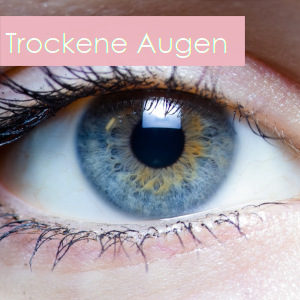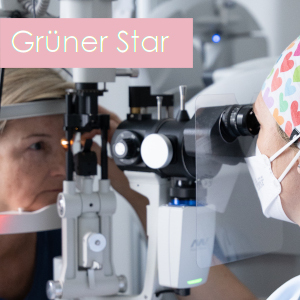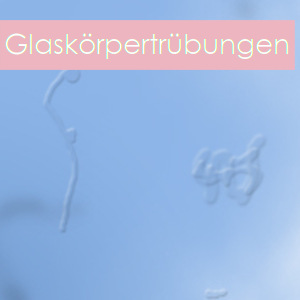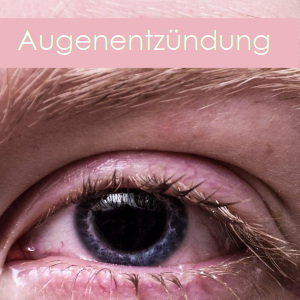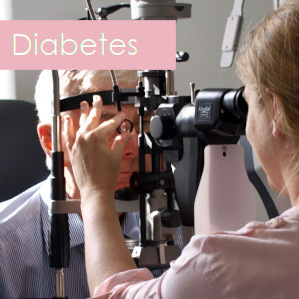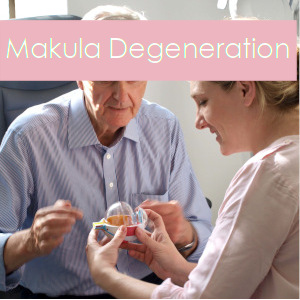Wer kennt das nicht: Die Augen röten sich und schwellen an. Ein Fremdkörpergefühl stört, es kommt zu brennenden oder stechenden Schmerzen. Im Laufe des Lebens bekommt nahezu jeder Mensch einmal eine Augenentzündung. Oft steckt eine harmlose Reizung dahinter, ausgelöst durch Staub, Allergene, Zugluft oder stundenlange Bildschirmarbeit. Ursache für die unangenehmen Symptome können aber genauso bakterielle, virale oder Pilz-Infektionen sein. Manchmal steckt auch eine unbemerkte Verletzung dahinter, oder es befindet sich ein Fremdkörper im Auge. Werden die Ursachen zu spät behandelt, kann es zu ernsten Komplikationen bis hin zur Erblindung kommen.
Klingen die Beschwerden nicht innerhalb kürzester Zeit wieder ab, sollten Sie unbedingt Ihre Augenärztin oder Ihren Augenarzt aufsuchen.
Augenentzündungen, die durch Viren, Bakterien oder Pilze verursacht werden, beginnen meist an einem Auge. Durch Augenreiben, Make-up etc. kann sich die Erkrankung auf das zweite Auge übertragen. Auch andere Personen, vor allem Familienmitglieder, können angesteckt werden. Neben einer verstärkten Rötung und glasigen Schwellung des Auges bilden sich bei derartigen Infektionen recht schnell wässrige, schleimige, eitrige oder sogar blutige Sekrete, die über Nacht verkleben. Dabei kommt es oft zu winzigen Hornhautverletzungen und in der Folge zu einer trüben Sicht.
Beim Sport, bei der Gartenarbeit, beim Heimwerken oder am Arbeitsplatz: Fremdkörper können in nahezu jeder Alltagssituation in das Auge geraten. Meist spülen sich die kleinen Teilchen mit der Tränenflüssigkeit von alleine wieder aus. Gefährlich ist es aber, wenn der Fremdkörper in der Bindehaut oder Hornhaut feststeckt, Verletzungen verursacht oder sogar in das Innere des Auges eindringt. Das gleiche gilt auch und insbesondere für Chemikalien und andere aggressive Flüssigkeiten. Wichtig zu wissen: Auch helles Licht und Blitze – z.B. Laser- oder Schweißblitze – können das Auge schädigen und die typischen Entzündungssymptome einschließlich Fremdkörpergefühl verursachen.
Lassen sich die Entzündungssymptome unmittelbar mit dem Einwirken von Fremdkörpern, Lichtblitzen oder Flüssigkeiten in Verbindung bringen, sollten Sie auf keinen Fall zögern und sofort eine Augenärztin, einen Augenarzt oder eine Augen-Notfallambulanz aufsuchen. Aber auch bei unklarer Ursache oder wenn Sie Kontaktlinsenträger:in sind, sollten Sie den augenärztlichen Besuch nicht lange aufschieben. Klingen die Beschwerden innerhalb von ein bis zwei Tagen nicht ab oder nehmen die Symptome wie Rötung, Schmerzen und Sekretbildung sogar zu, sollte Sie dies abklären lassen. Meist kann Ihre Augenärztin oder Ihr Augenarzt bereits mit einer Spaltlampenuntersuchung, einer schmerzfreien mikroskopischen Untersuchung der Augen, die richtige Diagnose stellen und eine entsprechende Therapie einleiten.
Eine erste Hilfemaßnahme bei sich ankündigenden Augenentzündungen ist sorgfältige Hygiene. Sekrete entfernen Sie am besten durch Spülen des Auges mit klarem Wasser. Um bei einer möglichen Infektion die Übertragung von Bakterien oder Viren zu vermeiden, sollten Sie stets frische Handtücher und Waschlappen verwenden und diese auf keinen Fall mit anderen Personen teilen. Falls Sie Kontaktlinsenträger:in sind: Setzen Sie Ihre Kontaktlinsen auf keinen Fall ins Auge ein und entsorgen Sie – wenn möglich – die Letztverwendeten.
Vorsicht vor Selbstmedikation
Frei verkäufliche Augentropfen und -salben könnten die Symptome unterdrücken, ohne jedoch die Ursache zu beseitigen. So besteht die Gefahr, die Erkrankung zu verschleppen und die Heilung erheblich zu verschlechtern. Wird die Ursache dagegen von Ihrer Augenärztin oder Ihrem Augenarzt frühzeitig erkannt und behandelt, heilen Entzündung und Verletzungen der Augen in der Regel ohne dauerhafte Beeinträchtigungen wieder ab.



